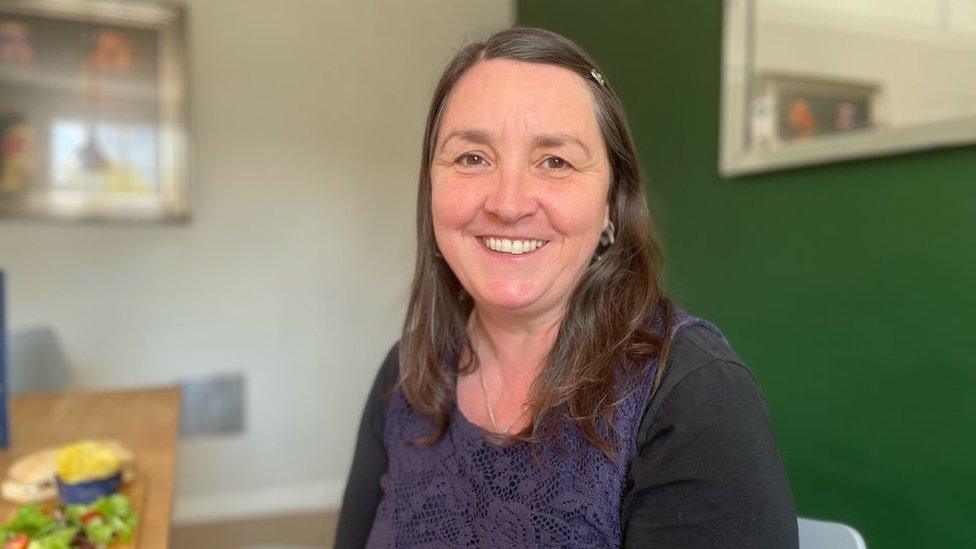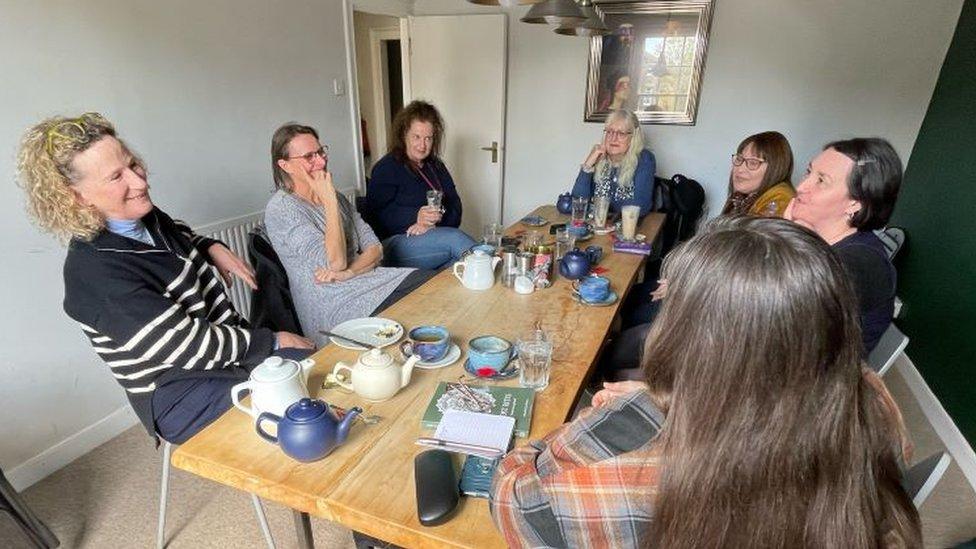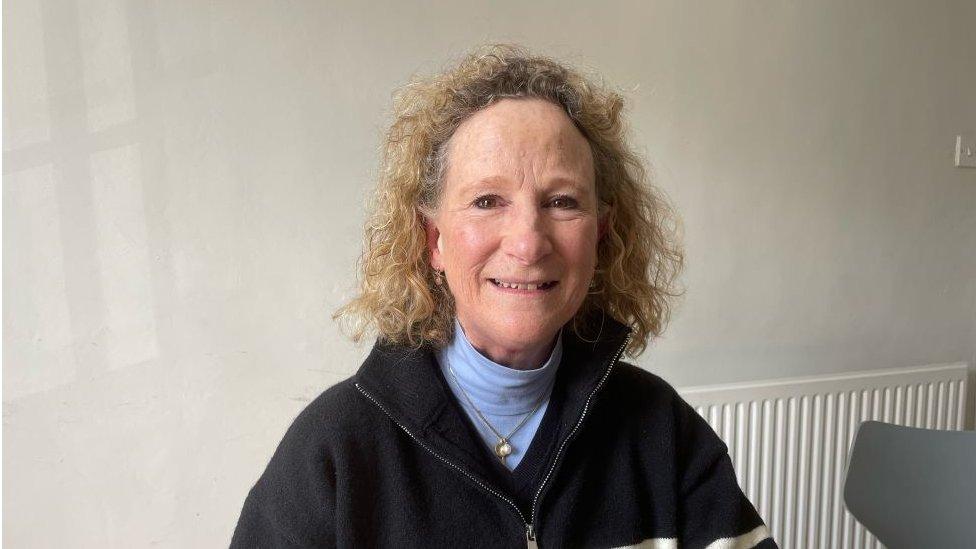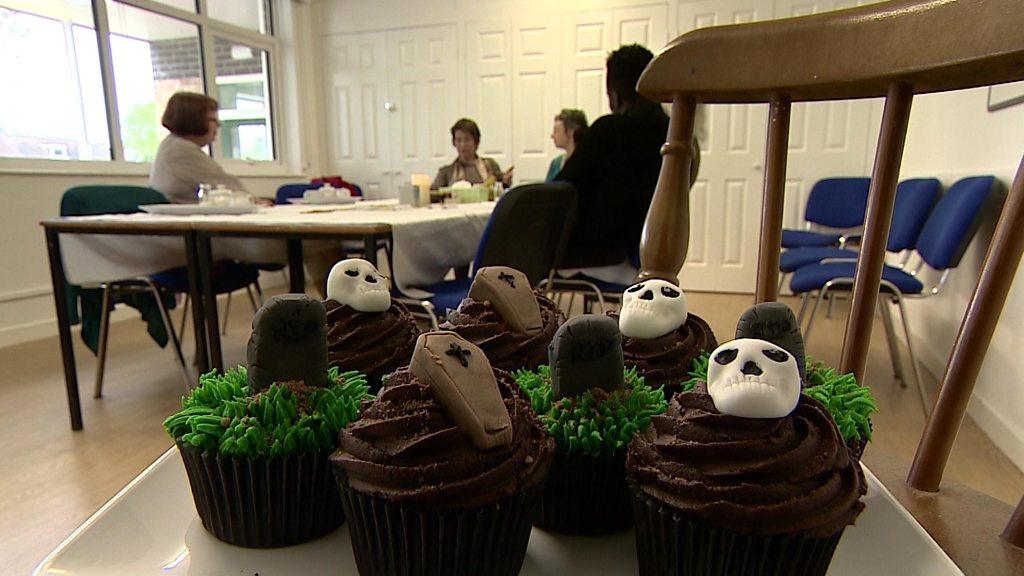Death Cafe is a space to talk mortality over tea and cake
- Published

Emily Myers said death has become less visible, affecting the ability to talk openly about it
People need to embrace talking about death according to a celebrant who runs a Death Cafe.
Emily Myers, a funeral celebrant, organised a cafe in Hadleigh, Suffolk to allow people to meet up and talk about death, bereavement and end of life plans over a cup of tea and cake.
There are 3,497 death cafes listed in the United Kingdom according to the Death Cafe website.
"We're all going to face it someday," Ms Myers said.
She realised through the process of becoming a funeral celebrant that there was "not a space to talk about death".
She said: "I was learning an awful lot of information about what it means to have a funeral and what it means to die and I hadn't really spoken to many people about it or about where to get information.
"I think it's really important to have a space to talk about death and dying and make it a bit more common place, that we do it more naturally rather than it being hidden way like it's been in the past.
"So we can talk to our relative, our parents and our children and it's much more open."

There are 3,497 death cafes listed in the United Kingdom
Ms Myers said she believed the increase in hospitalisations and removal of death from the home may have contributed to people being less visible.
"In the past a body would be in the house, over the last 100 or so years we've lost all of that.
"I hope people will come away feeling a bit more confident about speaking about death with their family. And to not shy away from it and have dome different perspectives or ideas they want to ask themselves," she added.

Jane O'Riordan says community is as important at the end of a person's life as it is at the beginning
Jane O'Riordan is an end-of-life doula, a non-medical professional, helping people and their families at the end of their life.
"Death isn't like how it is on the telly," she said.
"Working with families and communities is key. It takes a village to raise a child and it takes a village to die.
"We all have a duty to find out a little bit more about death and dying and it's not the elephant in the room," she added.

Got a story? Email eastofenglandnews@bbc.co.uk or WhatsApp 0800 169 1830
Related topics
- Published7 March 2024
- Published12 September 2016
